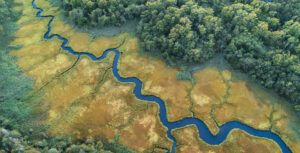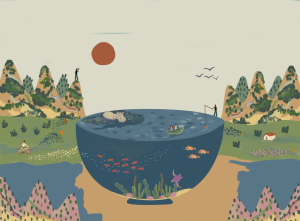The essential drop to reach Net-Zero: 10 minutes with Dr. Malin Lundberg Ingemarsson
Follow SIWI to COP27
To share new knowledge about water and climate, SIWI will be taking active part in the global climate conference COP27 between 6 and 18 November. Join our programme online to learn about a promising new generation of climate solutions.
SIWI at COP“We hope that [the international climate community] will begin to understand the synergies between freshwater and climate change mitigation better.”
And it is hoped that this research will influence climate mitigation strategizing and actions around the globe. “We hope that the messages of this report will find their way into the awareness of policy-makers and encourage them to consider freshwater within climate mitigation plans at national level. We also hope that the messages will be embraced by the international climate community, and that they begin to understand the synergies between freshwater and climate change mitigation better.”
Whilst the aim of the report is to influence policy-makers and strategists, Ingemarsson explains that we can all, in fact, play a role in water mitigation. “It’s important that we understand on an individual level that freshwater is a sparce resource and that the demand globally will increase with climate change. We need to spread the word about this, making everyone aware. We can all make small changes in our lives also, such as being mindful about the quantity of water we use on a daily basis and choosing to buy products that we know don’t have huge water requirements. And we mustn’t forget the power of the people, pressure on the private-sector comes from the demands of their customers. So, by demanding better from them and by embracing a circular lifestyle, we can all play part.”
Now that Ingemarsson has spent the best part of two and a half years immersed in the actions necessary to mitigate climate change, is she hopeful for the future? “Yes, very much so. I’m really encouraged at the growing level of engagement with climate mitigation and climate action at large, particularly with today’s youth. We need to work together to solve the greatest challenge mankind has ever faced and COP27 is one big step in that complex process. To that table, I bring freshwater as an important piece of the puzzle to create a climate-smart transition to sustainable development.”
The essential drop to reach Net-Zero: Unpacking Freshwater's Role in Climate Change Mitigation
The report shows a new way of thinking about climate change that can lead to more effective solutions.
read the report









